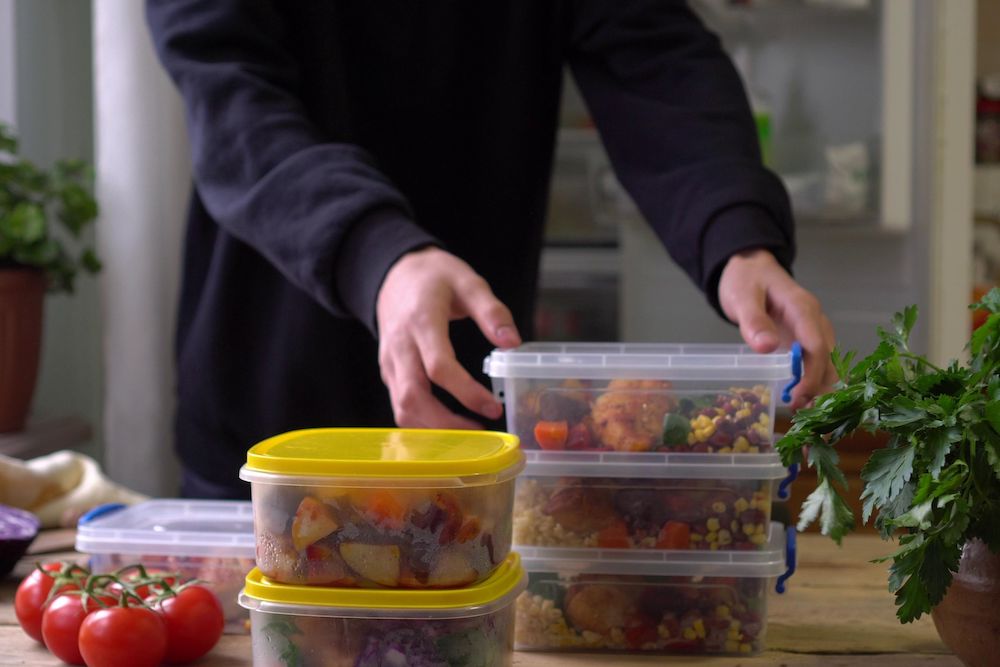If you haven’t already been convinced to try meal planning, now is as good a time as any to get started. Preparing healthy, delicious meals a week in advance not only saves you time and energy, but will save you money too. Think of all those times you’ve ordered takeout because you’ve been too exhausted to cook dinner—and all those vegetables you’ve had to throw out because they went bad before you had a chance to use them. Having meals ready to go in your fridge and buying only the produce you need for the week will put an end to all this wasteful spending.
The meal planning process is practical—and simple to nail down once you get into the swing of things. Yes, you’ll need to spend a little more time planning out your menu each week, but knowing that you have a healthy meal ready and waiting for you each and every day is so worth the effort. Here’s how to become a meal planning pro.
Work Around Your Schedule
The cardinal rule of meal planning? Prepare meals that fit seamlessly into your routine. If the week ahead is jam packed and you anticipate having to expedite your lunch breaks in between meetings, prep meals that need (at most) a quick reheat in the microwave before serving. Think sandwiches, pre-made soups, quesadillas and salads.
Depending on your work schedule, it’s also a good idea to choose one day of the week to be your prep day. Whether that’s a Sunday or Wednesday, commit to putting aside a few hours to adequately plan for the week ahead. Just remember to consider your recurring commitments and select a day where you know you will have some uninterrupted time to spend at the grocery store and in the kitchen.
Invest in the Right Containers
If you’re going to be cooking up a large number of dishes meant to be consumed over the course of a week, you’ll need to invest in plenty of high-quality containers for storing and transporting meals. To equip yourself for serious meal planning, purchase a microwave-safe set with containers of various sizes to accommodate different recipes and portion sizes.
Plan a Variety of Meals
Ensure that you stay satisfied by mixing up planned meals. It’s all too easy for nutrition goals to go out the window when monotony gets the better of you. Planned meals should feature a rotation of dishes with balanced protein, carb and fat contents and should ideally vary in textures and flavors.
Eat Your Freshest Meals First
It might seem obvious to consider which specific dishes to prioritize for earlier on in the week, but it’s easy to get tripped up and forget to consider best-before dates when planning a slew of meals. Eat meals with the most pressing expiration dates—like those featuring fresh fish, delicate greens and milk—first. Meals that typically work for later in the week include quinoa bowls, pasta dishes and stock-based soups.
It’s also worth considering which dishes would benefit from having their sauce or dressing kept separate until ready to be eaten. The last thing you want is to reach for your designated salad lunch and realize it has wilted into inedible mush due to the dressing having been applied days earlier. Instead, store salad dressing in a separate, smaller container until it’s time to eat.
There’s a reason that meal planning has become so popular. Prepping a full week’s worth of meals will help ensure you eat with intention, maintain a healthy diet and enjoy delicious meals every day. Whether you’re just getting started with meal planning or are simply trying to up your game, following this advice means you never have to stress about your lunch or dinner plans.
Make dinner even simpler with these tips for preparing weeknight meals.
Photo credits: Rawpixel / Shutterstock Inc., Fevziie / Shutterstock Inc., NDAB Creativity / Shutterstock Inc.








